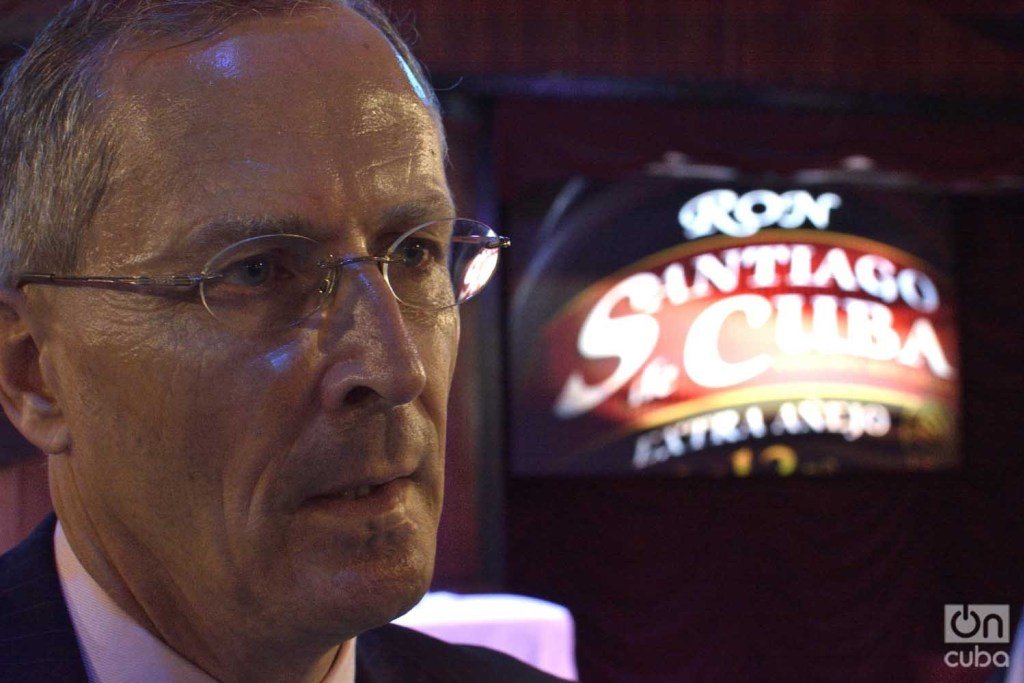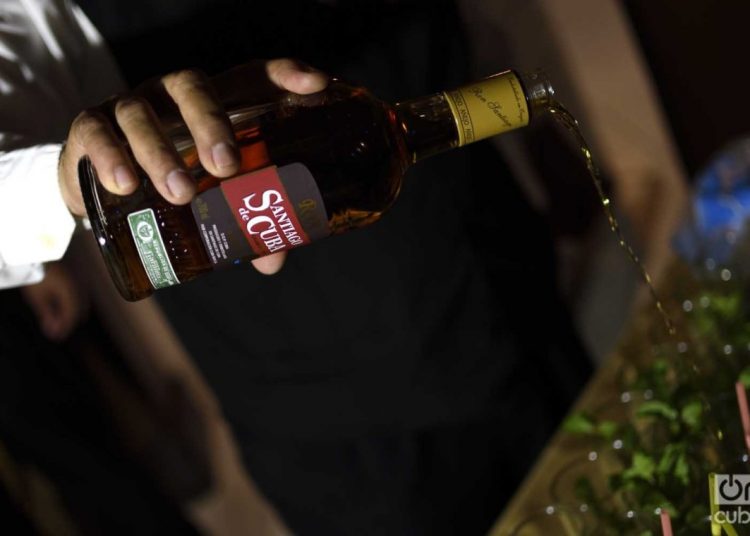The rum Santiago de Cuba, the second most important Cuban premium rum after the famous Havana Club and for many connoisseurs the highest-quality rum of spirits produced on the island, is headed toward the growing European market. And also beyond.
This Monday, a subsidiary of the British firm Diageo―world leader in the premium alcoholic beverage segment―and the Cuban state corporation Cuba Ron S.A. formalized the creation of a joint venture to distribute the renowned spirit internationally. The new venture, named Ron Santiago S.A., will have the exclusive global distribution rights, with the intention of multiplying the sale of Cuban rum throughout the world.
“The specialized publications consider that the Cuban premium rum represents approximately 9% of the sales of premium rum worldwide. And the main objective of this joint venture is to make this number grow and more,” said David Cutter, president of global production and purchases at Diageo.
https://www.facebook.com/UKinCuba/posts/2344629945591515
Two reasons support, according to Cutter, the commitment of his company―which markets such renowned brands as Smirnoff vodka, Johnnie Walker and J&B whiskeys, Tanqueray gin and Guinness beer―to the rum Santiago de Cuba.
The first of these is the unquestionable quality of this Cuban drink.
“The Santiago de Cuba is a rum with a fabulous liquid and a heritage as important as the history of the city where it is produced. It is an example of the enormous quality of Cuban rum and fits perfectly with today’s trend among consumers worldwide, and particularly in Europe, of what we call ‘drinking better,’ something that all Cubans know very well,” Cutter explained at the new venture’s launch at the Hotel Nacional and attended by Cuban Minister of Foreign Trade and Investment Rodrigo Malmierca.
The second reason, on the other hand, has to do with the London-based company’s own strategy, given the dynamics of the market and the potential of Cuban rum for its insertion.
“Diageo is committed to continue investing in opportunities to grow, especially in what we define as premium plus, the high gamut of spirits. And we strongly believe in the ability of this product to globally demonstrate its value.”
“Rum is showing a moderate growth of 3% per year in the world. But when we focus on the premium plus category, the growth has been an average of 12% per year, and in Europe it has been 16%, an even higher growth than the average of other premium plus spirits, which is 9%. And so, we are clearly interested in both Cuba Ron and Diageo, in exploiting that opportunity to make Cuban rum grow in the world, and specifically the rum Santiago de Cuba,” confirmed the British executive.

Meanwhile, Juan González, president of Cuba Ron S.A., told the press he felt “proud” and “excited” about the creation of the new joint venture “to build outside of Cuba the success of this premium rum,” which he described as an expression of Santiago and “part of Cuba’s tradition and culture.”
The representatives of both parties regretted that the U.S. embargo has closed the doors of the United States to this “authentically Cuban” product and stressed that the new venture has its back covered in the face of the application of sanctions by Washington, such as those included in the Helms-Burton Act.
“Diageo knows well all the measures and will seek to ensure that the applicable regulations are not violated,” commented Luca Cesarano, director of Ron Santiago S.A.
“The pertinent steps have been taken so that the subsidiary of our company that is part of this business and the joint venture also do not have to interact with any company of the Diageo group that is based and registered in the United States or with other U.S. companies. Likewise, at no time will citizens or residents of the United States be involved in transactions and negotiations,” he added.
For his part, Mr. Antony Stokes, Ambassador of the United Kingdom in Havana and who claims to greatly enjoy Cuban rum, considered the creation of the joint venture as “a reflection” of the current state of bilateral relations between his country and Cuba.

“Distributing in Europe the rum Santiago, which is a brand with a very high profile in Cuba, but unfortunately not well-known abroad, is a very important opportunity,” Stokes told OnCuba, “and that a British company will be doing it is of great significance. It reflects our goal of boosting trade and joint investments. Our ambition is to grow, something that is not so easy because of the existing obstacles, both internal and external, but we believe it would be an excellent result if this project contributes to the growth of bilateral relations.”
Santiago de Cuba is heir to the famous Bacardí rum, produced in that city in eastern Cuba until the nationalization of its factories after the triumph of the Cuban Revolution. The result of a tradition that dates back to the 19th century and that makes Santiago the cradle of light rum on the island, this spirit stands out for its aroma, smoothness and flavor that make it a unique product.
The new joint venture will allow a greater international distribution of its four modalities: Carta Blanca, Añejo, Añejo Superior and Extra Añejos, and will provide Cuba Ron―which includes brands such as Havana Club, Isla del Tesoro and Cubay in its catalog―higher income thanks to one of its flagship products.










